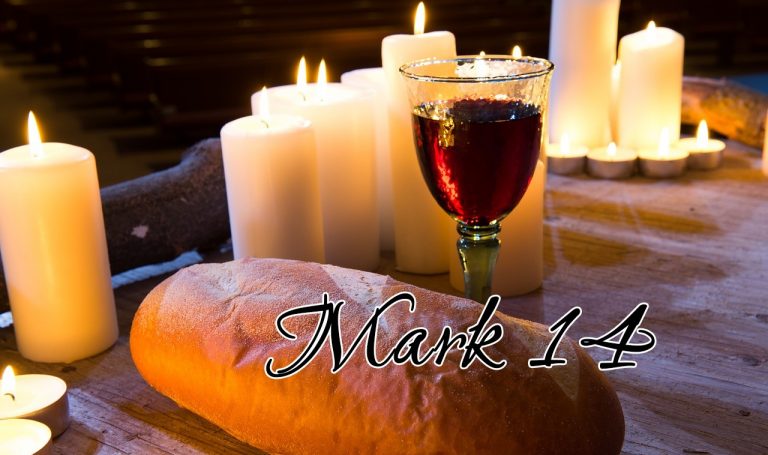A Man with a Withered Hand
3 Again he entered the synagogue, and a man was there with a withered hand. And they watched Jesus, to see whether he would heal him on the Sabbath, so that they might accuse him. And he said to the man with the withered hand, “Come here.” And he said to them, “Is it lawful on the Sabbath to do good or to do harm, to save life or to kill?” But they were silent. And he looked around at them with anger, grieved at their hardness of heart, and said to the man, “Stretch out your hand.” He stretched it out, and his hand was restored. The Pharisees went out and immediately held counsel with the Herodians against him, how to destroy him.
A Great Crowd Follows Jesus
Jesus withdrew with his disciples to the sea, and a great crowd followed, from Galilee and Judea and Jerusalem and Idumea and from beyond the Jordan and from around Tyre and Sidon. When the great crowd heard all that he was doing, they came to him. And he told his disciples to have a boat ready for him because of the crowd, lest they crush him, for he had healed many, so that all who had diseases pressed around him to touch him. And whenever the unclean spirits saw him, they fell down before him and cried out, “You are the Son of God.” And he strictly ordered them not to make him known.
The Twelve Apostles
And he went up on the mountain and called to him those whom he desired, and they came to him. And he appointed twelve (whom he also named apostles) so that they might be with him and he might send them out to preach and have authority to cast out demons. He appointed the twelve: Simon (to whom he gave the name Peter); James the son of Zebedee and John the brother of James (to whom he gave the name Boanerges, that is, Sons of Thunder); Andrew, and Philip, and Bartholomew, and Matthew, and Thomas, and James the son of Alphaeus, and Thaddaeus, and Simon the Zealot, and Judas Iscariot, who betrayed him.
Then he went home, and the crowd gathered again, so that they could not even eat. And when his family heard it, they went out to seize him, for they were saying, “He is out of his mind.”
Blasphemy Against the Holy Spirit
And the scribes who came down from Jerusalem were saying, “He is possessed by Beelzebul,” and “by the prince of demons he casts out the demons.” And he called them to him and said to them in parables, “How can Satan cast out Satan? If a kingdom is divided against itself, that kingdom cannot stand. And if a house is divided against itself, that house will not be able to stand. And if Satan has risen up against himself and is divided, he cannot stand, but is coming to an end. But no one can enter a strong man’s house and plunder his goods, unless he first binds the strong man. Then indeed he may plunder his house.
“Truly, I say to you, all sins will be forgiven the children of man, and whatever blasphemies they utter, but whoever blasphemes against the Holy Spirit never has forgiveness, but is guilty of an eternal sin”—for they were saying, “He has an unclean spirit.”
Jesus’ Mother and Brothers
And his mother and his brothers came, and standing outside they sent to him and called him. And a crowd was sitting around him, and they said to him, “Your mother and your brothers are outside, seeking you.” And he answered them, “Who are my mother and my brothers?” And looking about at those who sat around him, he said, “Here are my mother and my brothers! For whoever does the will of God, he is my brother and sister and mother.”
(ESV)
Mark 3 Commentary
by Brad Boyles
The healings of Jesus are well-documented and factual. Interestingly, the Jews did not dispute the healing power of Jesus, but rather, the source of that power. The Greeks did not dispute the healings either, but only questioned the interpretation. Others just thought they were staged events or documented improperly. What do the facts say?
And He told His disciples that a boat should stand ready for Him because of the crowd, so that they would not crowd Him; 10 for He had healed many, with the result that all those who had afflictions pressed around Him in order to touch Him.
Mark 3:9-10 NASB
People flocked to Jesus to be healed. Today, some pastors have interpreted the healing power of Jesus to represent the holistic health of a Christian. They would say if you aren’t completely well then you don’t have enough faith, or, there is a certain sin issue at hand. When we look at the Scriptures in context, we see a different purpose for healing.
They verified Jesus was the Messiah. Scripture foretold that the coming Messiah would be accredited with miracles. As I wrote in Mark 1, Jesus was immediately recognized as a rabbi with authority by the way he taught and the way he commanded demonic strongholds, sickness, and disease. These were unique traits that verified His Messianic nature. This is ultimately what ruffled the feathers of the religious and political elite – they could not explain the source of His power.
They drew people to Him. We read that Jesus commanded some who were healed not to tell others. This was probably to detract the Messianic political zealots who wanted the Messiah to overthrow Rome. However, it’s a fact that the crowds came out in masses to experience Jesus’ healing touch. In doing so, they also heard His Message. The most well-known example of this is the Sermon on the Mount.
They revealed the Kingdom of God. In His miracles, we see the compassion of God toward those in need. Countless stories illustrate that Jesus was deeply moved by human suffering. He healed some physically but He came to save for eternity. The miracles themselves set people up for a much deeper healing that He would eventually accomplish at the cross.
The 12 Disciples
Jesus chose 12 flawed men to follow Him. How do we know this? Peter was prone to being reckless and hasty. Thomas was slow to believe. James and John were known as the “sons of thunder” (literally “sons of feeling” or “sons of anger”). Simon was a zealot who most likely wanted to overthrow Rome. Matthew was a hated tax collector working for the Romans. It is interesting to consider how well they got along considering their differences!
There were siblings (James and John, Peter and Andrew), business colleagues (Peter, James, and John), opposing political views (Matthew and Simon), and one who would eventually betray Jesus (Judas Iscariot). The point is – these men brought lots of baggage into this relationship with Jesus, but they learned to trust Him and work together for His Kingdom.
Blasphemy Against the Holy Spirit
This story has been extensively taught (many times incorrectly) but there are still people today who worry they have committed the “unforgivable sin”. The text describes this sin as blasphemy against the Holy Spirit. So, naturally, we must investigate the purpose of the Holy Spirit to find out if we are against Him. The Holy Spirit has come to “convict the world of all sin and righteousness and judgment” (John 16:8), and to “testify to the work of Jesus” (John 15:26).
Naturally, if we do not repent of our sin, we have not been convicted by the Holy Spirit. If we do not place our faith in Jesus’ atoning sacrifice, we will not experience forgiveness. Therefore, the unforgivable sin is unbelief. All those who are not believers will experience judgment and eternal separation from God.
Jesus’ Mother and Brothers
Surprise, surprise. Jesus once again makes a radical statement. Everyone knows the phrase “blood is thicker than water.” In our culture today it means that family is more important than any other relationship. However, in the ancient world, the original context was, “The blood of the covenant is thicker than the water of the womb.” This is exactly what Jesus is stating at the end of Mark 3.
“The new family is a company of people not bound by ties of blood, but by a commitment to doing God’s will. This statement recalls the harsh language of Mat 10:35-37 : “For I have come to turn ‘a man against his father, a daughter against her mother.’… Anyone who loves his father or mother more than me is not worthy of me.” Rejecting the expected role of your parents may even look like hatred (Luk 14:26). Jesus held out for a higher responsibility, a more pressing claim. For him, doing the will of God superseded any other obligation.”
IVP New Testament Commentary




